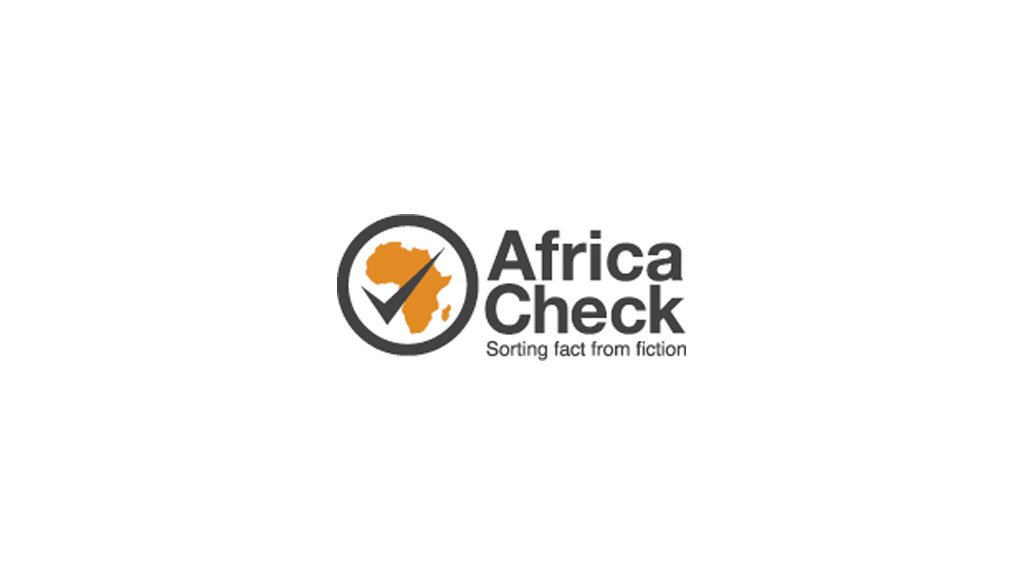At N20.5-trillion (about US$46.8-billion), the 2023 budget is the biggest yet in Nigeria’s 62-year post-colonial history.
But one of the candidates jostling to succeed him, Omoyele Sowore, was unimpressed by the numbers. He told an October 2022 meeting of chartered accountants that he had discovered it was an “illegal budget”.
This is because it “violated section 12, subsection (1) of the Nigerian constitution by way of the Fiscal Responsibility Act of 2007, which says explicitly that the deficit-to-GDP ratio of the national budget must not be more than 3%. We are now at 5%. That is unsustainable,” Sowore said.
Sowore, an activist and media entrepreneur, is a critic of Buhari. He is currently on trial on charges that include treason for organising the #RevolutionNow protest across the country in August 2019.
He founded the online news agency Sahara Reporters and is running on the ticket of the African Action Congress party, his second stab at the presidency following a 2019 bid.
A number of newspapers also reported on his remarks about the legality of the budget.
But did Buhari’s budget violate the law, as Sowore claimed, and did the candidate get his numbers correct? We took a look.
Section 12 of Nigeria’s constitution deals with treaties and not finances. But Sowore was accurate regarding the specific law – section 12 of the Fiscal Responsibility Act of 2007.
The law says the approved budget “shall not be more than the estimated aggregate revenue plus a deficit, not exceeding three per cent of the estimated Gross Domestic Product or any sustainable percentage as may be determined by the National Assembly for each financial year”.
Some quick definitions
A deficit refers to the difference between what a government earns and what it spends.
A country’s gross domestic product (GDP) is the measure of the size of its economy. It is the market value of all goods and services produced in a country in a given period, usually a year.
Comparing the two gives the deficit-to-GDP ratio. (It is also known as a debt-to-GDP ratio because it is a measure of how much a government needs to borrow to bridge the gap.)
Simply put, the ratio is a measure of a country’s ability to repay its debt by considering what it produces compared to what it owes.
It is immediately apparent from the law that lawmakers can vary the 3% deficit. The law also allows the president to increase the ratio above this if, in his opinion, “there is a clear and present threat to national security or sovereignty”.
When tabling the budget to lawmakers, Buhari acknowledged it exceeded the 3% deficit threshold. This, he said, was necessary in order to tackle the “existential security challenges facing the country”.
(Read our factsheet for more on the key issues at play in the elections.)
‘There’s no illegality there’
We asked experts if it was accurate to refer to the budget as illegal.
Felicia Anyogu is a professor of law at the Nnamdi Azikiwe University in southeastern Nigeria. “There is no issue of illegality since the law says the ceiling can be exceeded,” she told Africa Check.
“However, I cannot say there is no breach but the breach has been normalised by the concession that the 3% ceiling can be exceeded if the president believes there is an existential threat to the country.”
University of Nigeria Nsukka law professor Edwin Ezike criticised what he said was the country’s high cost of governance and wastage of public funds.
“However, as far as the law is concerned, there is no breach in the president proposing a deficit-to-GDP ratio above the 3% ceiling, since the fiscal responsibility act provides that it can be exceeded if the president believes there is a threat to national security. The truth is such threats exist. So, with that, the law has not been breached."
Nigerians have been debating the budget because it proposes to spend less on capital projects like roads, schools, hospitals and other public infrastructure.
The federal government projects that it will raise N16.87-trillion as revenue in 2023. But only N9.73-trillion will be available to fund the federal budget, with the rest going to states and local governments.
The federal government plans to borrow N10.78-trillion, or about half the total budget. This means that of the planned expenditure of N20.51-trillion, it has a deficit of N10.78-trillion.
Buhari gave the resulting deficit-to-GDP ratio as 4.78%. (Note: The budget did not give a GDP figure, but projected growth of 3.75% in 2023.)
“We plan to finance the deficit mainly by new borrowings totalling N8.8-trillion,” he said. Other sources of funds would be from privatisation and loans secured externally for development projects.
High deficit-to-GDP ratio bad for the economy
Having such a high budget deficit hurts the economy and the citizens, Chris Ekong, professor of economics at the University of Uyo in southern Nigeria, told Africa Check.
“It is more of a problem because the deficit is going to be spent mainly on recurrent expenditure and that will increase the amount of money in the country and will lead to a further rise in inflation. The prices of food and other things Nigerians need will go up,” he said.
“On the other hand, a lot of the money will leave the country because not so much is produced here. The exchange rate crisis will continue. Much of the funds that would be borrowed will be used to pay fuel subsidies, which are largely fraudulent and favour the rich. Removing the subsidy is a good idea. There is already no subsidy for diesel and kerosene, which is used mainly by the poor,” Ekong said.
The cost of Nigeria's controversial fuel subsidy keeps rising. The country paid out over N2.8-trillion in subsidies between February 2021 and June 2022.
This report was written by Africa Check., a non-partisan fact-checking organisation. View the original piece on their website.











